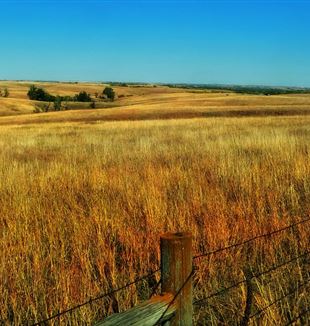
A torrent of (welcomed) change
When I was at the National Diaconia a few weeks ago, you posed a question to a crowded New Yorker Hotel conference room: “How do you know you need to change?” Immediately, hands rose, followed by a string of answers...Dear Fr. Carrón:
When I was at the National Diaconia a few weeks ago, you posed a question to a crowded New Yorker Hotel conference room: “How do you know you need to change?” Immediately, hands rose, followed by a string of answers. While I listened, I recognized that something radical was happening to these people and to me. The very fact that we in the Movement want to change is revolutionary! And so I write this letter to answer your question. A year ago, I was living in a small, rural Nebraskan town. I was earning my Master’s degree in Education and teaching in a town of less than 500 people. In those months, I taught classes, went home, and did nothing. I avoided my friends, especially those in CL. I played SNL episodes back-to-back for hours because silence was unbearable. My personality, usually over-enthusiastic and eager, seemed annihilated. Slowly, the intensity of my sadness ebbed, to be replaced with the dull throb of self-disgust. I had no tenderness towards myself. The core of this arose from a belief that I was somehow self-made. When that flimsy foundation crumbled beneath me, when I realized that my efforts were not enough to make me “good,” I couldn’t stand who I was! With a backwards “nobility,” I censured my wants and my attractions because I considered myself undeserving. This was not a conscious thought, but an attitude I had absorbed from the culture. Then a new drama began unfolding. I met a friend who began giving me back my personality, simply by being who he was. He was so generous with his own personality that I saw what he had and began to want again. I would catch myself being happy and I would try to put an end to it. I would catch myself wanting to go outside to see something beautiful, and I would stop myself. But my want was relentless, pressing, urgent. I wanted life. I just didn’t think I deserved it. This tension culminated on a late summer evening when I was lamenting my brokenness to a friend. She suggested, hesitantly, that perhaps this was an opportunity for someone to show me mercy. I grew agitated and shouted, “But I don’t want mercy!” My friend was silent and I had wide, sudden-seeing eyes. Those words had been churning inside of me for some time and speaking them was like a surgery to remove a cancerous tumor. Some light that I had forbidden switched on suddenly, and I gasped, “Oh my God!” I began to see myself for what I was: a creature–a totally contingent being, made by God, unnecessary and yet, somehow, existing. Everything I had, from the moment of my conception, had been one extravagant mercy after another. To reject mercy was to reject my humanity. By embracing my total need, the burden of “being noble” was lifted from my shoulders. My job was to follow and pay attention as I walked. I started going to School of Community in Omaha, I went on the CL Young Workers Vacation in Estes Park, Colorado, and the Advent Retreat in Atchison, Kansas. I just looked, and I was educated. When I began teaching at a new school in August, the theme I chose for the school year was: “The road is beautiful for those who walk.” Step by step, I follow, provoked again and again by my joys, my sadness, my attractions, my mistakes. I have the memory of 12 months of change to remind me that I will change again and again through a torrent of mercy. I am filled with anticipation for whatever will come.
Emily, Omaha, Nebraska (USA)